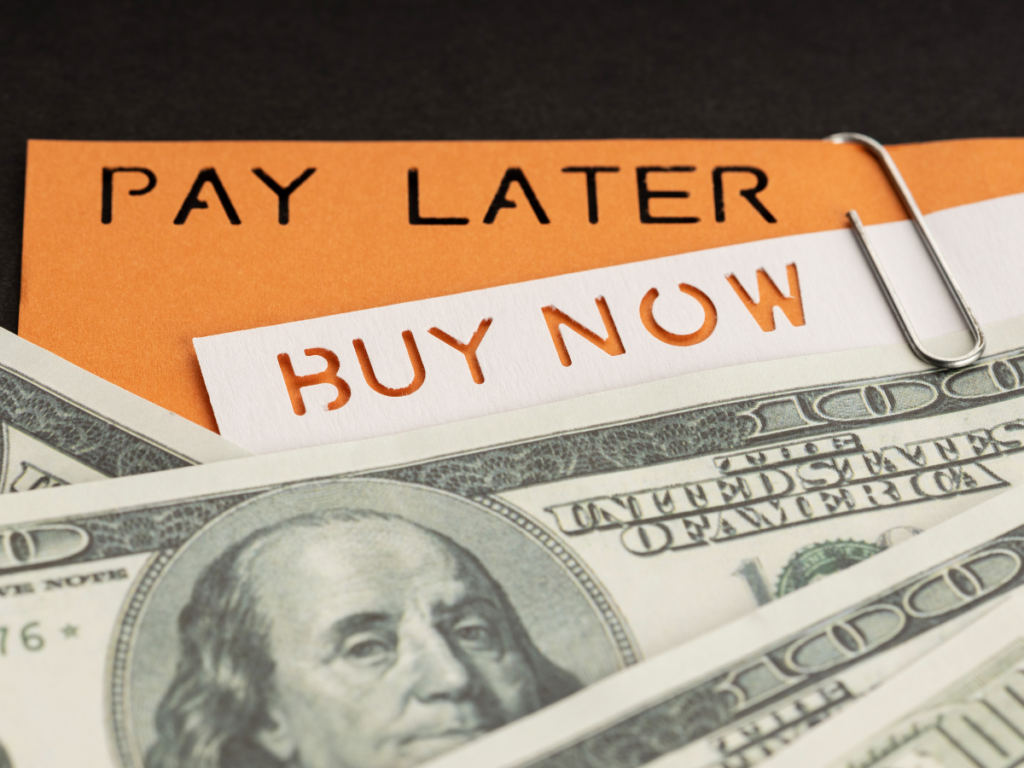New research uncovers a significant rise in BNPL usage for essentials, fueling concerns among experts. Explore the alarming trends and calls for action.
Many experts are calling for immediate action as concerns about the unfettered growth of buy now, pay later (BNPL) businesses grow. The Behavioural Insights Team and the Money Pensions Service (MaPS) recently completed research that reveals a substantial shift in consumer behavior lends support to the call.
According to the report, one in five BNPL users, or close to two million people, currently depend on this payment option to pay for necessities. The necessities that are currently being funded through BNPL more frequently are groceries (11%), toiletries (8%), household bills (5%), and fuel (4%).
While the report reveals that BNPL offers convenience, with 82% of respondents considering it simple to grasp and 76% saying it’s simple to manage and pay off, the trend’s darker side cannot be ignored. 55% of BNPL users who were surveyed have pending payments, and 33% are managing several unpaid debts. This level of financial vulnerability is alarming since it could lead to a debt cycle that would have an adverse effect on their long-term financial stability.
About 70% of those surveyed acknowledged using BNPL even though they had meant to make full upfront payments. Concerns about a rising reliance on deferred payments and their potential effects on financial stability are raised by this behavioral change.
Although BNPL provides an appearance of simplicity, the study highlighted several dangers. A sizable percentage (32%) struggled to manage their BNPL spending, with 14% missing payments and accruing late fees. The explanations ranged from prioritizing other debt repayments (34%) to not knowing when payments were due (32%).
One in ten have used a credit card (10%) or money from savings (13%) to make a repayment.
Fewer safeguards
The advocacy group Which? highlighted the need for more information disclosure and potential regulatory control for BNPL providers, and our findings are consistent with their concerns. It highlights the fact that lenders who offer BNPL are not required to have Financial Conduct Authority authorization, potentially giving consumers fewer protections.
It is not unexpected that more customers are using BNPL to pay for necessities in the middle of the biggest cost of living crisis in decades, according to Rocio Concha, director of policy and advocacy at Which?
“Despite the variety of BNPL choices that are available to customers at the checkout, many providers provide only cursory information regarding the dangers of using BNPL to pay, such as the possibility of incurring debt and the effects of customers skipping payments, such as a negative impact on credit scores.
“BNPL is unregulated, which means lenders do not need Financial Conduct Authority authorization and consumers have less rights if something goes wrong. The government allegedly breaking past promises to control BNPL is even more worrisome given that more people are resorting to BNPL to fund necessities. Plans for regulation should be unveiled as soon as possible by ministers.
The government previously declared that it must regulate BNPL products in a “proportionate manner” to safeguard borrowers while continuing to permit access to these advantageous interest-free products.

Offering assistance
Ellie Lugt, senior adviser at the Behavioural Insights Team, advises providers and merchants to assist customers by issuing timely payment reminders and posting straightforward disclosure notifications “so that customers are clear on what they are signing up for”.
MaPS has advised anyone who is concerned about BNPL to use its “free, impartial help and guidance” at www.moneyhelper.org.uk.
“This research shows that many people are using it when they hadn’t intended to and spending more because it was available,” said Jackie Spencer, head of money and pensions policy at the MaPS. They must make sure they can afford the payments and avoid running the danger of converting a short-term product into long-term debt.
“I would strongly encourage you to use our MoneyHelper service right away if you need assistance with buy now, pay later or any credit repayments. You don’t need to experience this alone.











